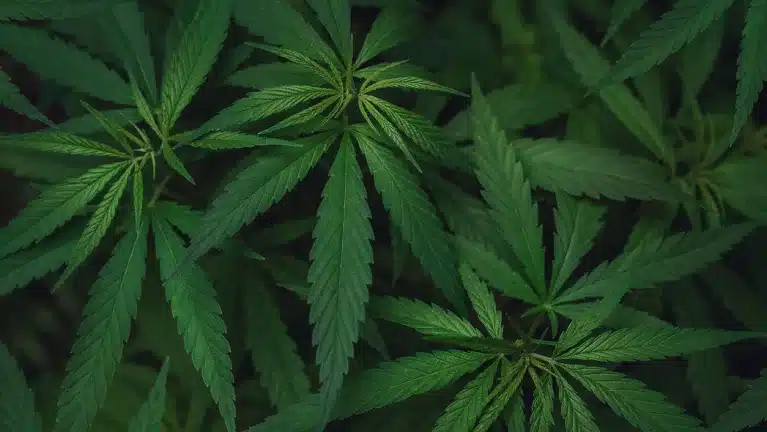December 6, 2023
Stop and Smell the Flowers: The Odor of Marijuana Alone Should No Longer Provide Police Probable Cause for Warrantless Vehicle Searches
The Florida Highway Patrol (FHP) and the Florida State Attorney’s Office in the Nineteenth Circuit are “ahead of the curve” in protecting the privacy rights of Florida drivers in response to recent changes in the marijuana and hemp laws. Memoranda from Gene Spaulding, Director of the Florida Highway Patrol, and Bruce H. Colton, State Attorney for the Nineteenth Judicial Circuit of Florida, make clear that the mere presence or odor of suspected marijuana can no longer support probable cause to conduct a warrantless vehicle search, which requires probable cause that some contraband or evidence of criminal conduct will be discovered during the search.
The State Attorney’s Memorandum instructs law enforcement operating in the Nineteenth Circuit regarding the 2019 changes in Florida law, as follows:
Since there is no way to visually distinguish hemp from cannabis, the mere presence of suspected cannabis or its odor will no longer suffice to establish probable cause to believe that the substance is cannabis. Law enforcement officers should therefore look for other evidence of illegality before taking any action that requires probable cause.
See State v. Nord, 28 Fla. L. Weekly Supp. 511 (Fla. 20th Cir. Ct. 08/08/2020) (quoting Memorandum of State Attorney Bruce H. Colton) (circuit judge ordering suppression because the smell of marijuana during stop can no longer constitute the sole basis for probable cause to conduct a vehicle search without a warrant.)
The FHP Director’s Memorandum explained that “there is no way to distinguish hemp and cannabis based on plain view or plain odor alone.
Subsequently, many law enforcement agencies have adopted what is called the ‘odor plus standard’ to determine probable cause to conduct a search of a vehicle upon the smell of marijuana. …Effective immediately, FHP troopers shall follow the ‘odor plus standard’ procedures provided in this directive until superseded by policy. Troopers are expected to continue to conduct cannabis investigations, but should not rely solely on the smell of cannabis for conducting a search.” The Memorandum provides an “example,” as follows:
While conducting a traffic stop, you detect the odor of cannabis emanating from the vehicle. Prior to searching, you should ask the subject, “Do you have any marijuana or hemp in the vehicle?” If the subject answers “No”, then you have reached the threshold to detain and search. If the subjects answers “Yes”, then you need to determine if it is marijuana or hemp. If the subject advises it is marijuana, then you must determine if the marijuana is legally obtained (medical marijuana). If the subject has illegal marijuana, then you may now detain and search. See Memorandum from FHP Director (07/03/2019) in re: “Immediate Impact of the Hemp Law – Senate Bill 1020″
The FHP’s training materials regarding “Florida Medical Marijuana Law” provide FHP troopers practical guidance by illustrating various “scenarios” involving marijuana that can come up during traffic stops.
The Changing Legal Landscape
At least twenty-one (21) U.S. states, Washington, D.C., and Guam, have legalized the recreational use of marijuana, and some of those jurisdictions have prudently adapted their “probable cause” analyses in this changing landscape. Courts in Massachusetts, Colorado, Vermont, Pennsylvania, and Illinois have held that, as a result of decriminalization or legalization, the odor of marijuana no longer provides the probable cause required for searches. See Commonwealth v. Cruz, 459 Mass. 459, 476-477 (Mass. 2011) (odor of burnt cannabis did not support probable cause required to justify a warrantless search by police, post decriminalization); see also People v. McKnight, 2019 CO 36, 446 P.3d 397 (holding that, because dog alert may signal legal activity such as possession of a small amount of marijuana, probable cause must be based on more than odor to believe vehicle contains drugs in violation of state law); State v. Clinton-Aimable, 232 A.3d 1092, 1101-1103 (Vt. 2020) (holding that odor of marijuana and driver’s voluntary surrender of marijuana did not provide probable cause to seize and later obtain a warrant to search the vehicle, post-decriminalization); Commonwealth v. Barr, 266 A.3d 25, 44 (Pa. 2021) (determining that the odor of marijuana alone does not provide the probable cause to search a vehicle, post-legalization of medical marijuana); People v. Stribling, 2022 IL App (3d) 210098, ¶ 29 (holding that the “smell of the burnt cannabis, without any corroborating factors, is not enough to establish probable cause to search the vehicle”) (holding that the pre-existing enough law of Illinois Supreme Court is “no longer applicable to post-legalization face patterns.”).
The Legislatures in California, New York, and Virginia have addressed the issue in passing laws, making clear that law enforcement in their states can no longer treat the odor of marijuana in the same fashion after the legalization. See Cal. Health & Safety Code 11362.1(c) (in relation to marijuana regulation, providing that “no conduct deemed lawful by this section shall constitute the basis for detention, search, or arrest”); N.Y. Penal Law § 222.05 (3) (legislation expressly providing that “no finding or determination of reasonable cause to believe a crime has been committed shall be based solely on * * * (a) the odor of cannabis; (b) the odor of burnt cannabis”); Va. Code Ann. § 4.1-1302 (providing that no stop, search, or seizure may occur “solely on the basis of the odor of marijuana.”)
The Florida Courts
The Florida state courts are still behind the curve. See e.g. Owens v. State, 317 So. 3d 1218 (Fla. 2d DCA 2021) (concluding that recent legalization of hemp and marijuana does not undo existing precedent, and holding that regardless of whether the odor of marijuana is indistinguishable from the odor of hemp, the odor of marijuana emanating from a vehicle continues to provide probable cause for a warrantless search)(in express disagreement with Nord); State v. Brookins, 290 So. 3d 1100, 1104 (Fla. 2d DCA 2020) (“Our supreme court has observed that the odor of burnt marijuana emanating from a vehicle … provides probable cause to search each of the vehicle’s occupants.”) (citing State v. Betz, 815 So. 2d 627 , 633 (Fla. 2002)); Johnson v. State 275 So. 3d 800, 802 (Fla. 1st DCA 2019) (even if the driver was a medical marijuana patient, this would not defeat probable cause); State v. Tigner, 276 So. 3d 813 (Fla. 4th DCA 2019) (order granting motion to suppress was improper because the odor of marijuana alone was sufficient to give the officers the requisite probable cause to search both the vehicle and its occupants) (following pre-legalization case law); Charley v. State, 298 So. 3d 735 (Fla. 1st DCA 2020) (following Tigner).
A criminal defense lawyer must anticipate changes in the law and argue that Florida Court Judges must adapt the analysis of the probable cause needed to support warrantless vehicle searches in the new post-legalization era, keeping in mind that probable cause is a “flexible, common-sense standard.” Florida v. Harris, 568 U.S. 237 240 (2013) (quoting Illinois v. Gates, 462 U.S. 213, 239 (1983)). It “turn[s] on the assessment of probabilities in particular factual contexts-not readily, or even usefully, reduced to a neat set of legal rules.” Id. at 244 (quoting Gates, 462 U.S. at 232). Probable cause “is not a high bar.” Kaley v. United States, 571 U.S. 320, 338 (2014). It is enough if there is “the kind of ‘fair probability’ on which ‘reasonable and prudent [people,] not legal technicians, act.’ ” Harris, 568 U.S. at 244 (alteration in original)(quoting Gates).
“Reasonable and prudent” Florida police officers should now take into account that we no longer live in the age of marijuana prohibition.
LIKE THIS BLOG POST? SHARE IT WITH THE WORLD

